Henan Province authorities are continuing to crack down on Buddhism and Taoism, destroying historical relics along the way.
Li Guang
In their war against religion, the Chinese authorities are becoming very inventive in coming up with fake reasons to demolish temples, such as that burning incense pollutes the environment, statues are disrupting air travel, or they are too tall. Bitter Winter continues to receive news about temples that have been sealed off, and religious statues destroyed; some of them have been earlier listed as historical relics by the authorities.
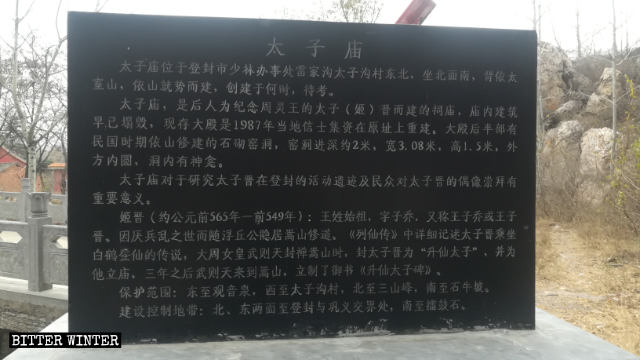
Taizi Temple is a Taoist place of worship located in Leijiagou village, under the jurisdiction of Shaolin sub-district in Dengfeng city. In January 2017, it was recognized by the authorities as a “protected historical and cultural site of Dengfeng city.”
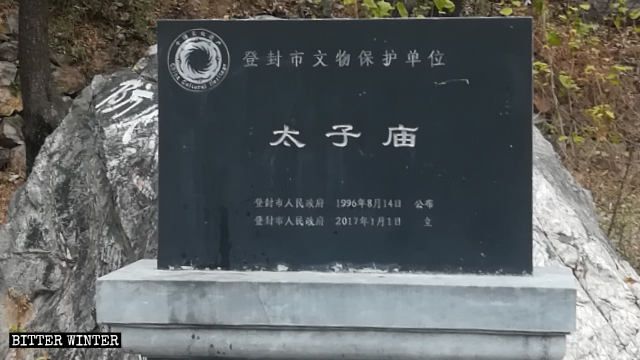
In November last year, Dengfeng city’s Cultural Relics Management Bureau ordered the temple’s owner to clear out the statues of deities, a donation box, and an incense burner within three days and leave the premises. Because of his age – the owner is in his 80s – he could not move out the artifacts by himself.

As the basis for these demands, the authorities cited the decision by the central government that the burning of incense and other religious activities had been prohibited at religious venues.
In February 2019, the authorities surrounded the temple with barbed wire and hung up a sign “Closed for Rectification.”

Guangyan Temple, a Buddhist temple with a history spanning over 1,000 years, is located in Chengbo town, in Mengzhou county-level city, under the jurisdiction of prefecture-level Jiaozuo city. The authorities closed down the temple because they said it was unlicensed.
On November 29, 2018, under the orders by their superiors, three village officials knocked over the incense burner and tore down the plaque on the gate. Even the patterns engraved on the temple’s pillars were also scraped off. Afterward, they used bricks to block off all the temple’s doors and windows.
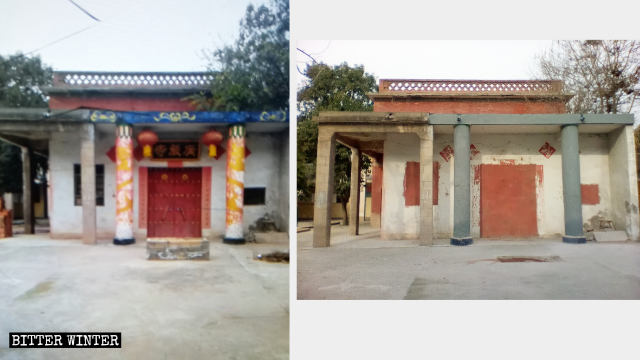
Fusheng Temple, a Buddhist temple in Dongguosi village, under the jurisdiction of Xinzheng city, not only has been sealed off but also taken over by the government.
One of the temple’s monks revealed that Fusheng Temple was shut down for being unlicensed in December 2017. In late October 2018, the authorities enclosed with iron sheets the Guanyin statue in the courtyard of the temple and removed the temple’s incense burner. On February 23 this year, the authorities converted the temple into “Bai Juyi Academy” and painted the temple white.
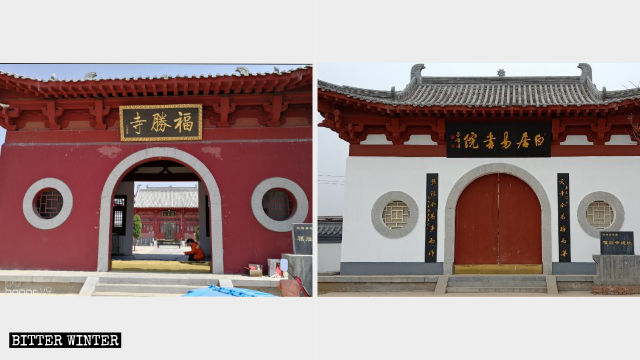
The monk said that he had been applying for a license for the temple for years, but the government wouldn’t approve it.

Over in Jindegu township, in Nanle county, under the jurisdiction of Puyang city, Buddhist Fojing Temple was sealed off on March 28 this year on the grounds that it had not received approval. To prevent believers from resisting, government officials secretly dug a hole in the ground and buried the Buddhist statues.
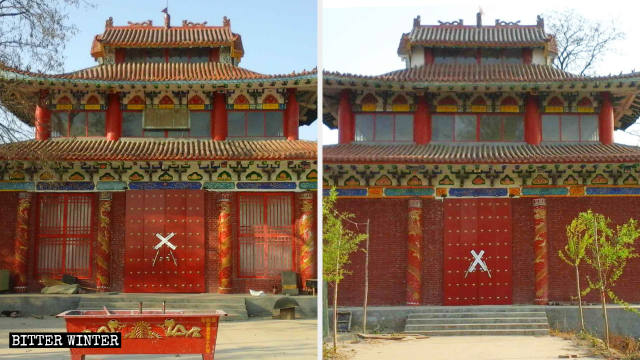
One local believer revealed that on two occasions, the person in charge of the temple contacted the government to apply for a license, but the applications were never approved. In December 2016, local Buddhists raised more than 500,000 RMB (about $74,400) to build Fojing Temple. But less than three years later, it has been shut down by the government.

On January 21, a Buddhist temple located in Shisi town, in Xin’an county, under the jurisdiction of Luoyang city, was also sealed off by the authorities who claimed that the land for the temple had been taken illegally.
A temple’s monk said, “Not only is the government combating religion, but they even try to cloak themselves in a veil of legality. They are doing evil things but want to earn a good reputation as well. Virtue has its reward, evil its retribution. They absolutely must be punished.”

Go to Source
Author: Li Guang




